Latest Research News
Press Release (Dec. 16, 2024)
AIST Press Release
New Role of Intestinal Bacteria in the Brain Discovered
- Intestinal Bacteria are Key Players in the Normal Development of New Neurons in the Brain -
Presenters:
Masakazu Namihira and Kazutoshi Murotomi, Biomedical Research Institute
Prof. Kazuhiro Hirayama, Graduate School of Agricultural and Life Sciences, The University of Tokyo
Toa Pharmaceutical Co., Ltd.
Overview:
Masakazu Namihira, Group Leader, and Kazutoshi Murotomi, Senior Researcher, Biomedical Research Institute, National Institute of Advanced Industrial Science and Technology (AIST), and Professor Kazuhiro Hirayama of Graduate School of Agricultural and Life Sciences, The University of Tokyo have discovered a new role of intestinal bacteria (gut microbiota) in the brain, in collaboration with Toa Pharmaceutical Co., Ltd.
A phenomenon called “adult neurogenesis”, in which the adult brain produces new neurons, is thought to be involved in the regulation of memory and emotion. We have discovered that the presence of intestinal microflora is necessary for the normal development of newly born neurons. We also found that the intake of three types of probiotics can supplement the role of the gut microbiota in adult neurogenesis and increase the number of neural stem cells that produce neurons, compared to mice raised under normal conditions. These results suggest that probiotics may contribute to the maintenance of brain health.
Details of the results will be published in STEM CELLS on December 16, 2024.
Please click here (Japanese) to read the detailed press release article.
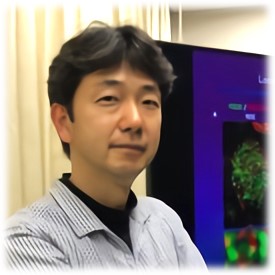
Masakazu Namihira
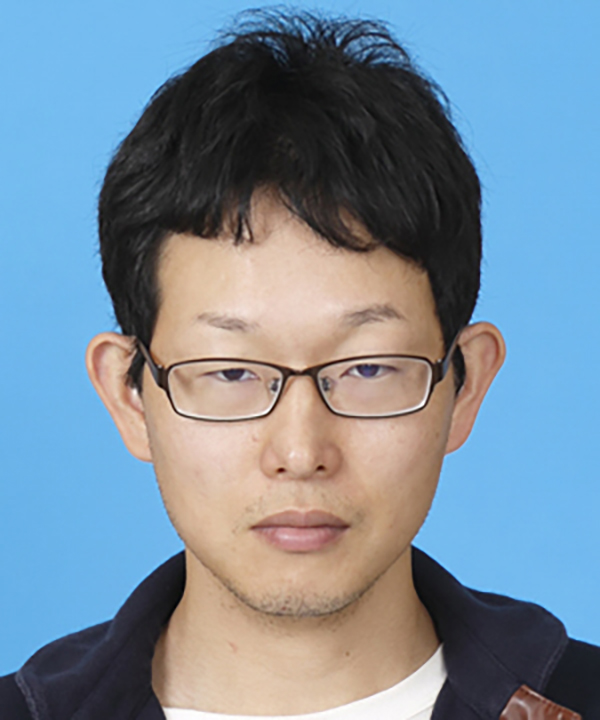
Kazutoshi Murotomi
Press Release (Dec. 3, 2024)
AIST Press Release
Discovery of a New Bio-Based Adhesive! Adhesion of Automotive Structural Materials with Euglena-Derived Material
- Contributing to the Recycling of End-of-Life Automotive Parts by Taking Advantage of Their Ability to be Disassembled When Heated -
Presenters:
Motonari Shibakami and Tomoki Himiyama, Biomedical Research Institute
Nao Terasaki, Department of Electronics and Manufacturing Sensing System Research Center
Asahi Kasei Corp.
Overview:
Motonari Shibakami, Career Researcher, and Tomoki Himiyama, Senior Researcher, Biomedical Research Institute, and Nao Terasaki, Department of Electronics and Manufacturing Sensing System Research Center, National Institute of Advanced Industrial Science and Technology (AIST), have confirmed that a polysaccharide (paramylon) based composition extracted from Euglena cells (hereafter referred to as “Euglena adhesive”) exhibits adhesive strength that can be used as an adhesive for automobile structural materials, in collaboration with Asahi Kasei Corporation.
The Euglena adhesive is a biobased adhesive whose main ingredient is paramylon, which is accumulated in large quantities in the cells of Euglena. The Euglena adhesive can be made by adding fatty acids to paramylon. This Euglena adhesive can bond aluminum plates with a bond strength that exceeds that required for bonding aluminum structural materials for automobiles. This bond strength is comparable to the typical bond strength of epoxy adhesives, which are typical petroleum-based adhesives for automotive structural materials, and also exceeds the bond strength of previously reported biobased adhesives.
Waste derived from end-of-life vehicles has a tremendous impact on the environment. Against this backdrop, the ELV (End of Life Vehicles) Directive was issued in 2000 by the EU to facilitate the disassembly of end-of-life vehicles and the reuse and recycling of their parts. Therefore, adhesives with both high adhesive strength and easy disassembly have long been required. The newly developed Euglena adhesive is expected to contribute to solving the environmental problems caused by end-of-life vehicles because it has both high adhesive strength and easy disassembly.
Please click here to read the detailed press release article.
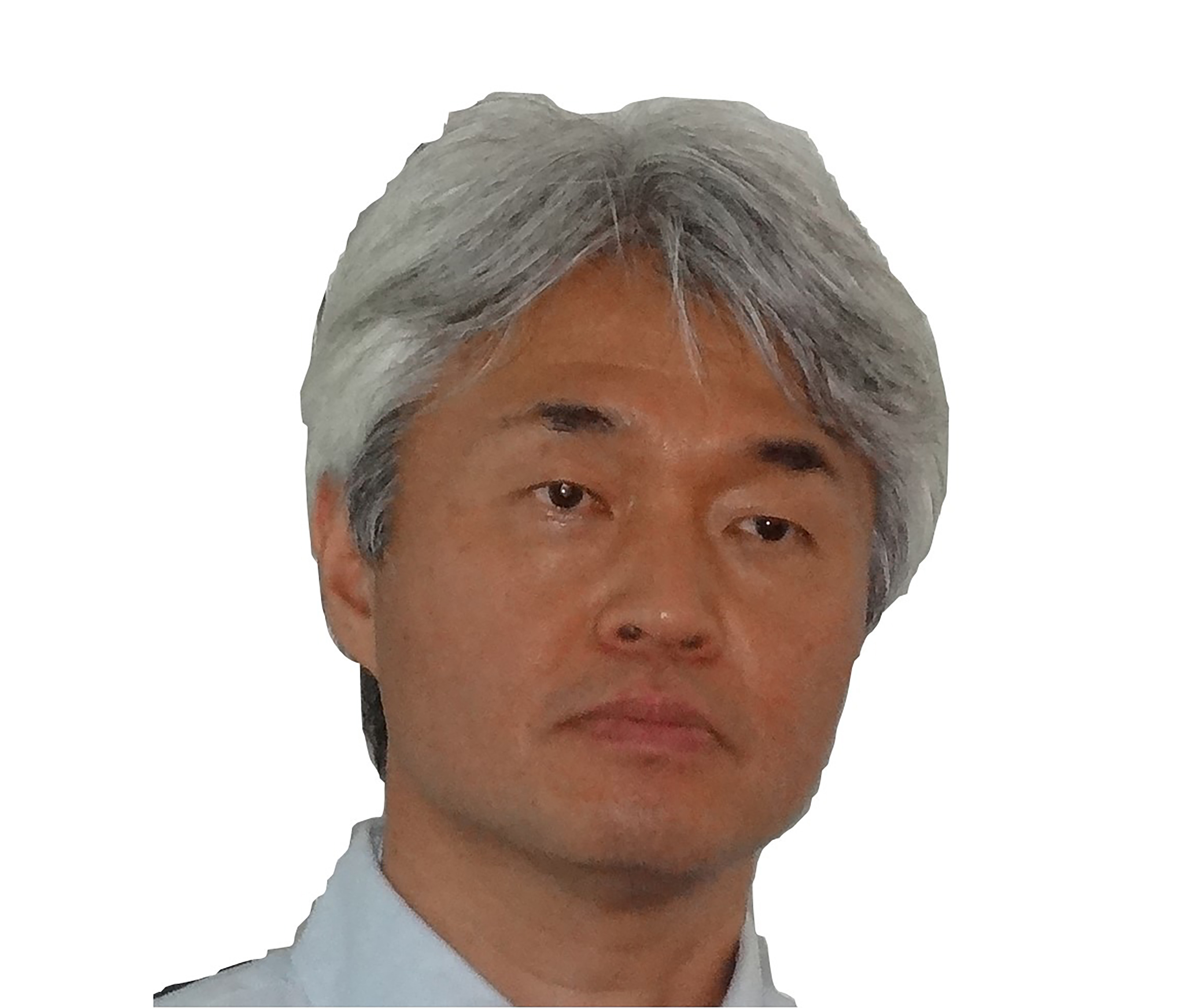
Motonari Shibakami

Tomoki Himiyama
Press Release (Sep. 26, 2024)
AIST Press Release
Development of Fundamental Technology for Microorganism Discovery to Support Biomanufacturing
- Productization of Reagents for Detecting Microbial Growth in Droplets -
Presenters:
Akira Sasaki and Naohiro Noda, Biomedical Research Institute
Overview:
Akira Sasaki, Group Leader, and Naohiro Noda, Concurrently serves Research Group, Biomedical Research Institute, and their colleagues have developed a technology for detecting microbial growth inside water-in-oil droplets. This is an important technology that can be used for screening to expand microbial resources for biomanufacturing.
This technology detects microorganisms growing inside the droplet by utilizing the fact that fluorescent dyes that stain the membrane of microorganisms are localized on the membrane and increase the fluorescence intensity. Compared to unstained cases, this technology is more sensitive and uses an indicator dependent on the number of microorganisms, enabling specific detection and recovery of droplets in which microorganisms are proliferating. “Million Screening” of microorganisms using this technology will help accelerate the search for microbial resources, thereby accelerating biomanufacturing and contributing to the realization of a bioeconomy society.
On-chip Biotechnologies Co., Ltd. has commercialized detection reagents for use in this technology and will begin sales on October 1.
Please click here (Japanese) to read the detailed press release article.

Akira Sasaki
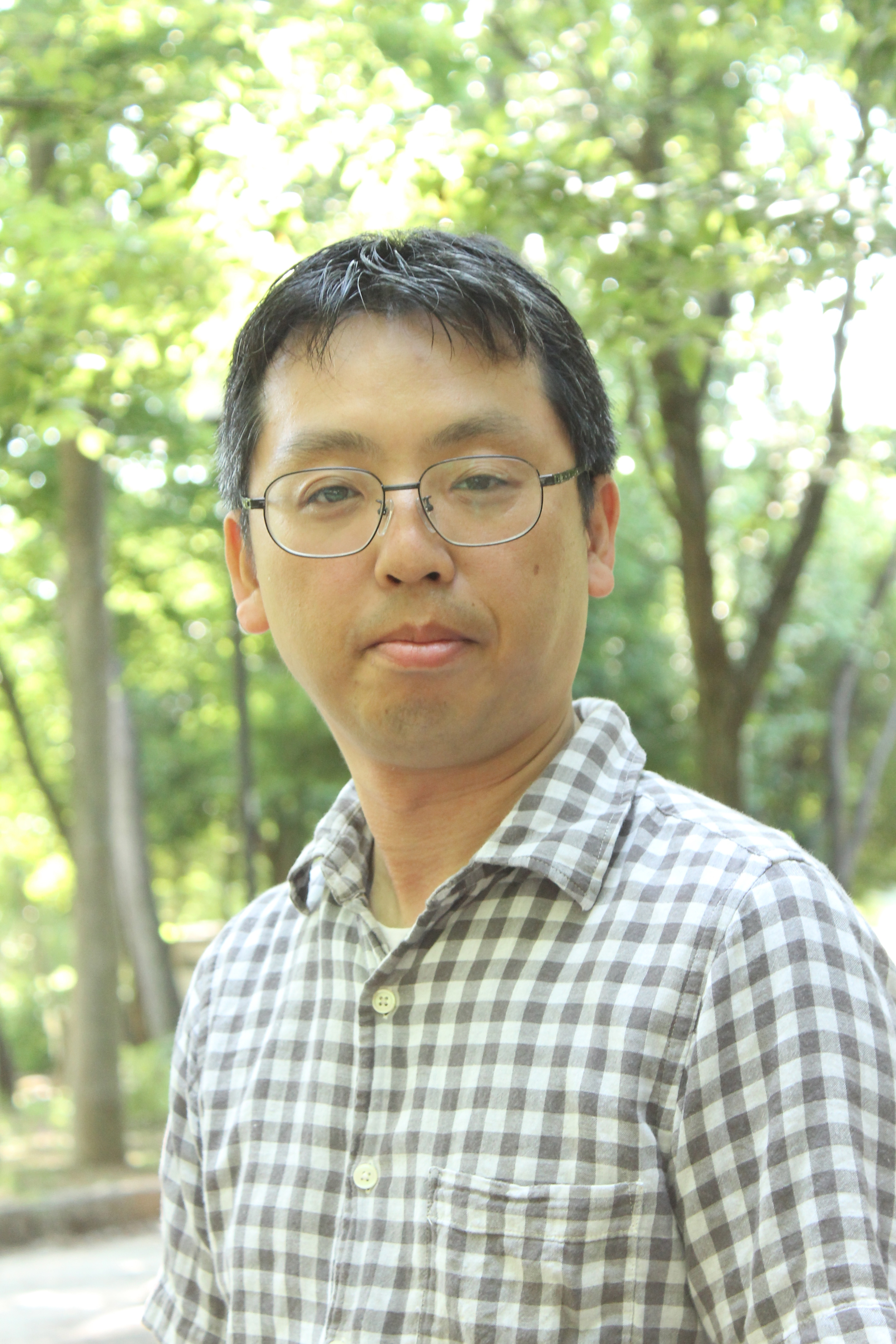
Naohiro Noda
Press Release (Sep. 19, 2024)
AIST Press Release
Medical Sheet Simultaneously Heals Wounds of Different Organs
- Manipulates Macrophages to Accelerate Healing -
Presenters:
Riki Toita, Yuuki Shimizu, Eiko Shimizu, and Tomonori Deguchi, Biomedical Research Institute
Masahiro Kitamura and Atsushi Kato, NGK Spark Plug-AIST Healthcare Materials Cooperative Research Laboratory
Niterra Co., Ltd.
Akira Tsuchiya, Graduate School of Dental Science, Kyushu University
Jeong-Hun Kang, Research Institute, National Cerebral and Cardiovascular Center
Overview:
Riki Toita, Chief Senior Researcher, Biomedical Research Institute (BMRI), Yuuki Shimizu, Researcher, BMRI, Eiko Shimizu, Technical Staff (at the time of the research), BMRI, and Tomonori Deguchi, Senior Researcher, BMRI, have developed technology to simultaneously promote bone and muscle repair at the same time, in collaboration with Masahiro Kitamura, Specified Concentrated Research Specialist (at the time of the research), NGK Spark Plug-AIST Healthcare Materials Cooperative Research Laboratory, Atsushi Kato, Specified Concentrated Research Specialist (at the time of the research), NGK Spark Plug-AIST Healthcare Materials Cooperative Research Laboratory, Niterra Co., Ltd., Akira Tsuchiya, Assistant Professor, Graduate School of Dental Science, Kyushu University (currently Associate Professor, Institute of Environmental Science and Technology, The University of Kitakyushu), and Jeong-Hun Kang, Director, Research Institute, National Cerebral and Cardiovascular Center.
Bone and muscle injuries from surgical procedures and accidents occur frequently, and delayed healing and postoperative complications are problems. It has been difficult to simultaneously heal bone and muscle using conventional growth factor-based techniques. We have discovered that bone and muscle healing can be accelerated simultaneously by manipulating macrophages, which positively and negatively regulate tissue healing, with the use of newly prepared collagen sheets. This is expected to be applied to support early reintegration into society after surgery and to regenerative therapies for different organs.
The details of this technology were published online in Acta Biomaterialia on August 17, 2024.
Please click here (Japanese) to read the detailed press release article.
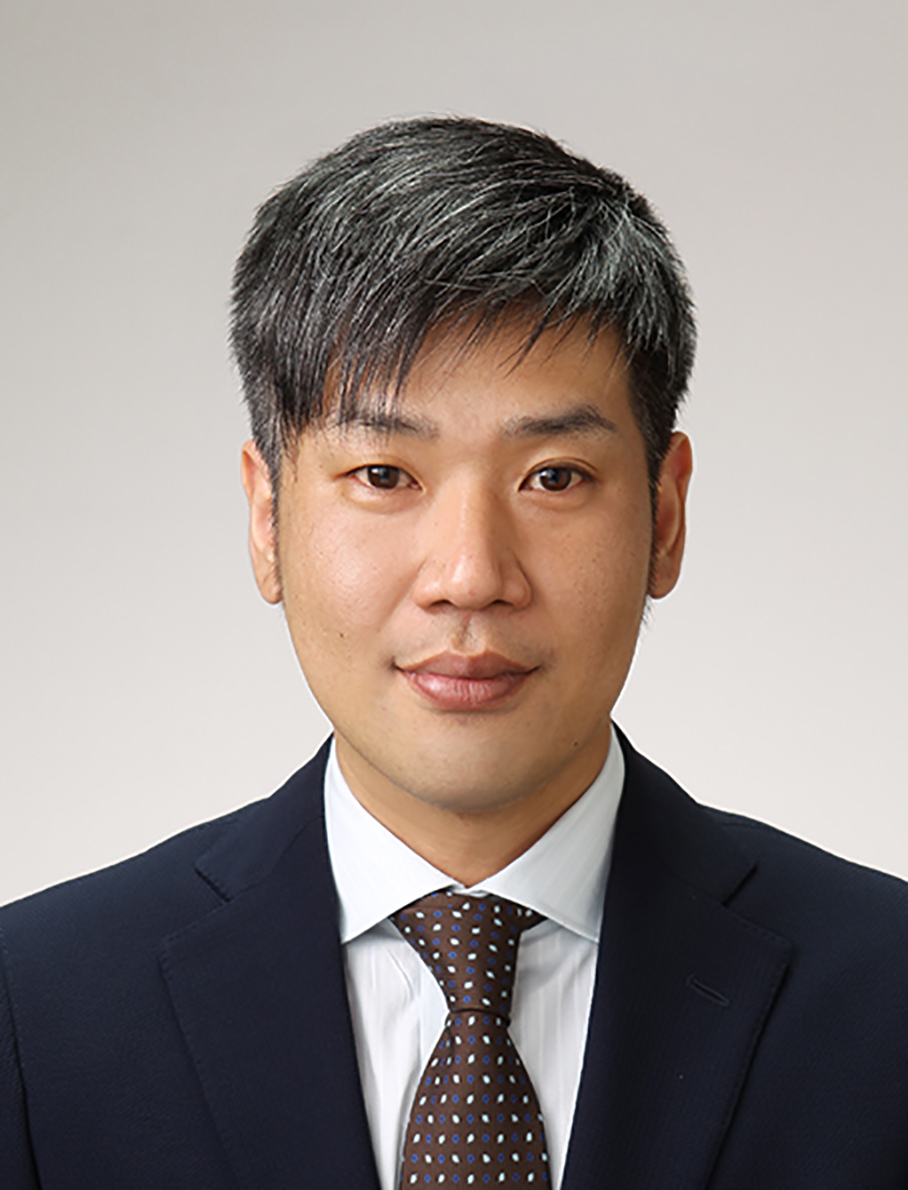
Riki Toita
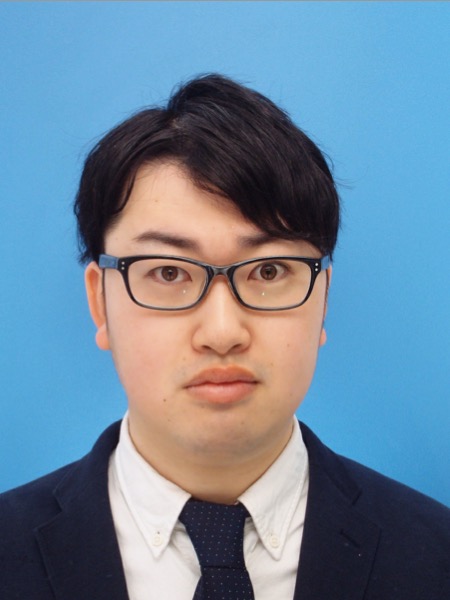
Yuki Shimizu
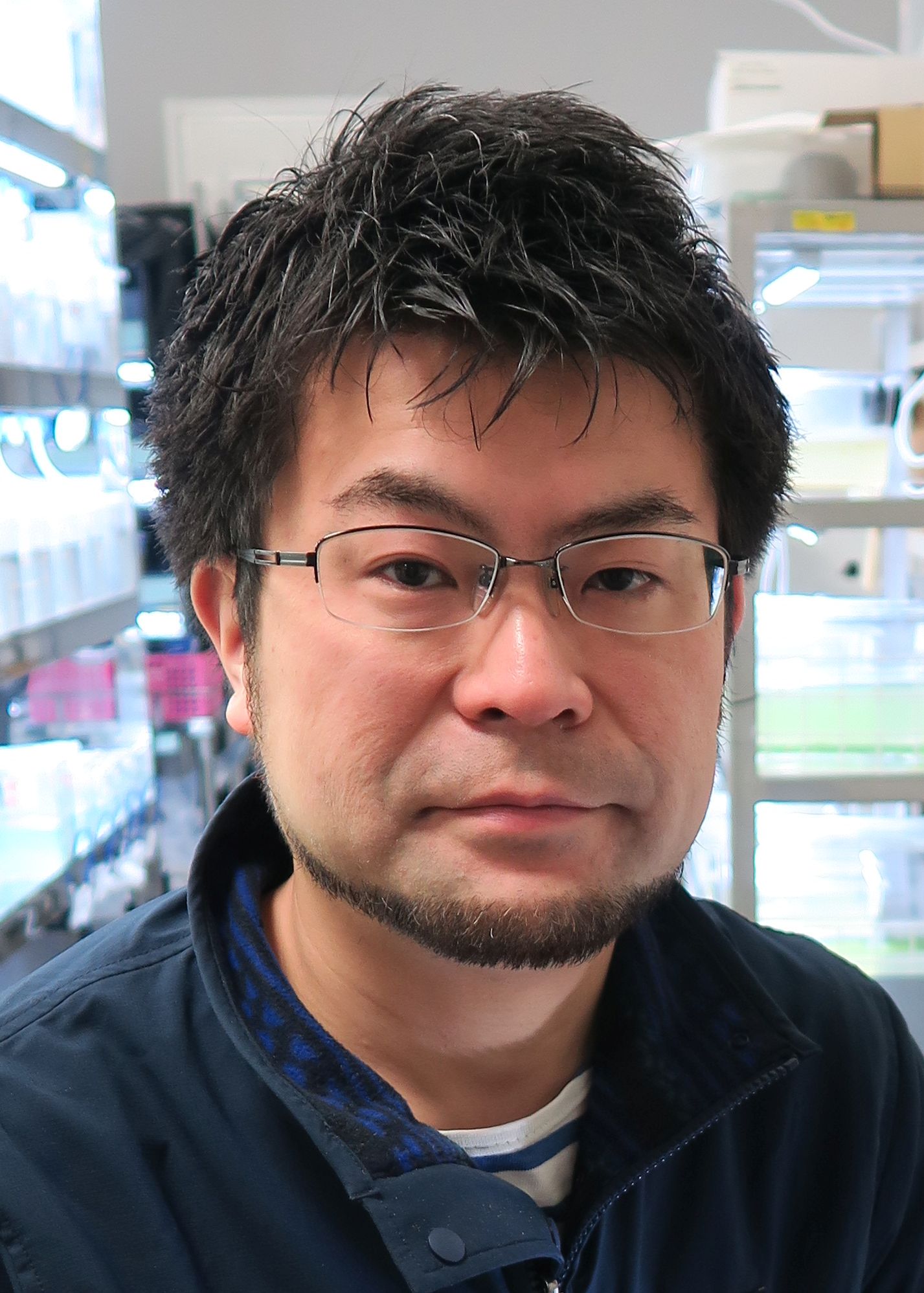
Tomonori Deguchi
Article Publication in News Magazine (Aug. 15, 2024)
“Monthly juniorAERA, September issue”, published by Asahi Shimbun Publications
Feature article: “The Unknown World of Luminous Creatures!”
This feature article was supervised (navigated) by Yoshihiro Ohmiya, Prime Senior Researcher, Biomedical Research Institute.
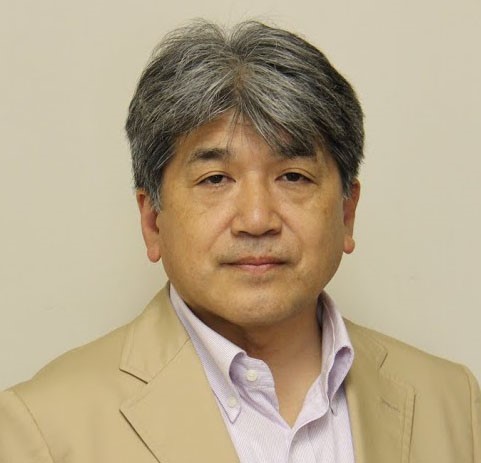
News magazine: Monthly juniorAERA, September 2024 issue
Published by Asahi Shimbun Publications, Inc. on August 9, 2024
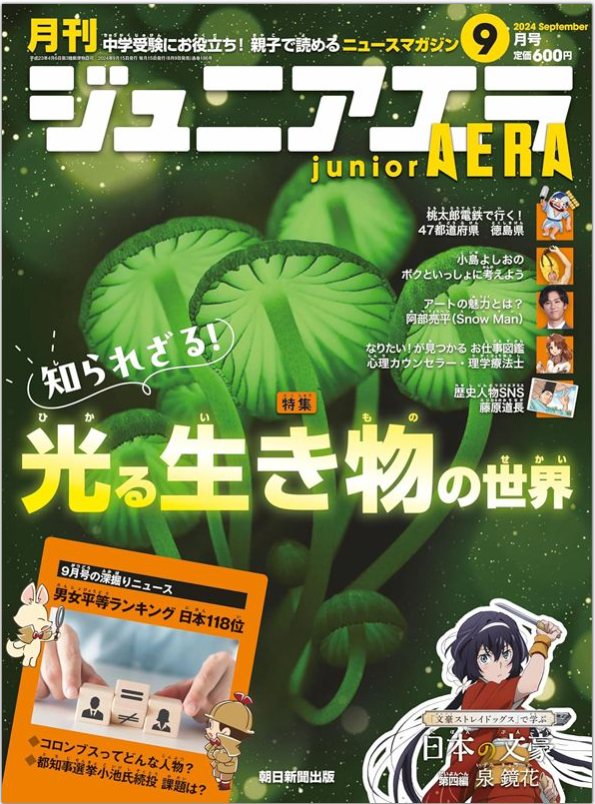
Press Release (Jun. 17, 2024)
AIST Press Release
Fish Diseases Detected by Feces
- Biomarkers Identified to Detect Fish Diseases in Land-Based Aquaculture Farms without Harming Individual Fish -
Presenters:
Mio Takeuchi, Biomedical Research Institute
Takashi Narihiro and Kyohei Kuroda, Bioproduction Research Institute
Jun Kikuchi, RIKEN
Erina Nagata, Kindai University
Overview:
Mio Takeuchi, Senior Researcher, Advanced Genome Design Research Group, Biomedical Research Institute, Takashi Narihiro, Group Leader, Bioproduction Research Institute, and Kyohei Kuroda, Senior Researcher, Bioproduction Research Institute, have discovered various characteristic substances and microorganisms in the feces of fish infected with cold water disease and revealed that these can be used as biomarkers for the early detection of the disease, in collaboration with Jun Kikuchi, Team Leader, Environmental Metabolic Analysis Research Team, Center for Sustainable Resource Science, RIKEN, and Erina Nagata, Lecturer, Faculty of Agriculture, Kindai University.
Using microbiome analysis technology from AIST, metabolome analysis technology from RIKEN, and fish infection experimental technology from Kindai University, the metabolites and microbial genes in feces were comprehensively analyzed, and the metabolites and microbes characteristic of cold water disease infected fish in feces accumulated in aquaria were successfully identified for the first time. Early diagnosis of cold water disease, which is serious worldwide in sweetfish and rainbow trout, is important because it is difficult to prevent the disease with a vaccine. By using feces, the disease can be diagnosed non-invasively without collecting fish tissue, as has been conventionally done, and regular and comprehensive health checks can be performed. This technology proposes several candidate biomarkers that can be used for this purpose. In the future, the technology is expected to be used for early detection and simple health diagnosis of various fish diseases as well as cold water diseases, thereby contributing to the reduction of economic losses and environmental burdens caused by fish diseases.
Details of this technology will be published in mSphere on June 17, 2024.
Please click here (Japanese) to read the detailed press release article.

Mio Takeuchi
Book Selected and Introduced in Scientific Magazine(May 20, 2024)
A book by Prime Senior Researcher Yoshihiro Ohmiya, “Mystery! A Large Illustrated Book of Luminous Creatures” was selected and published in the scientific magazine “Newton, Separate Volume, Illustrated Guide to the Best Books on Science, Vol. 2”.
Scientific magazine: Newton, Separate Volume, Illustrated Guide to the Best Books on Science, Vol. 2
Published by Newton Press on May 8, 2024
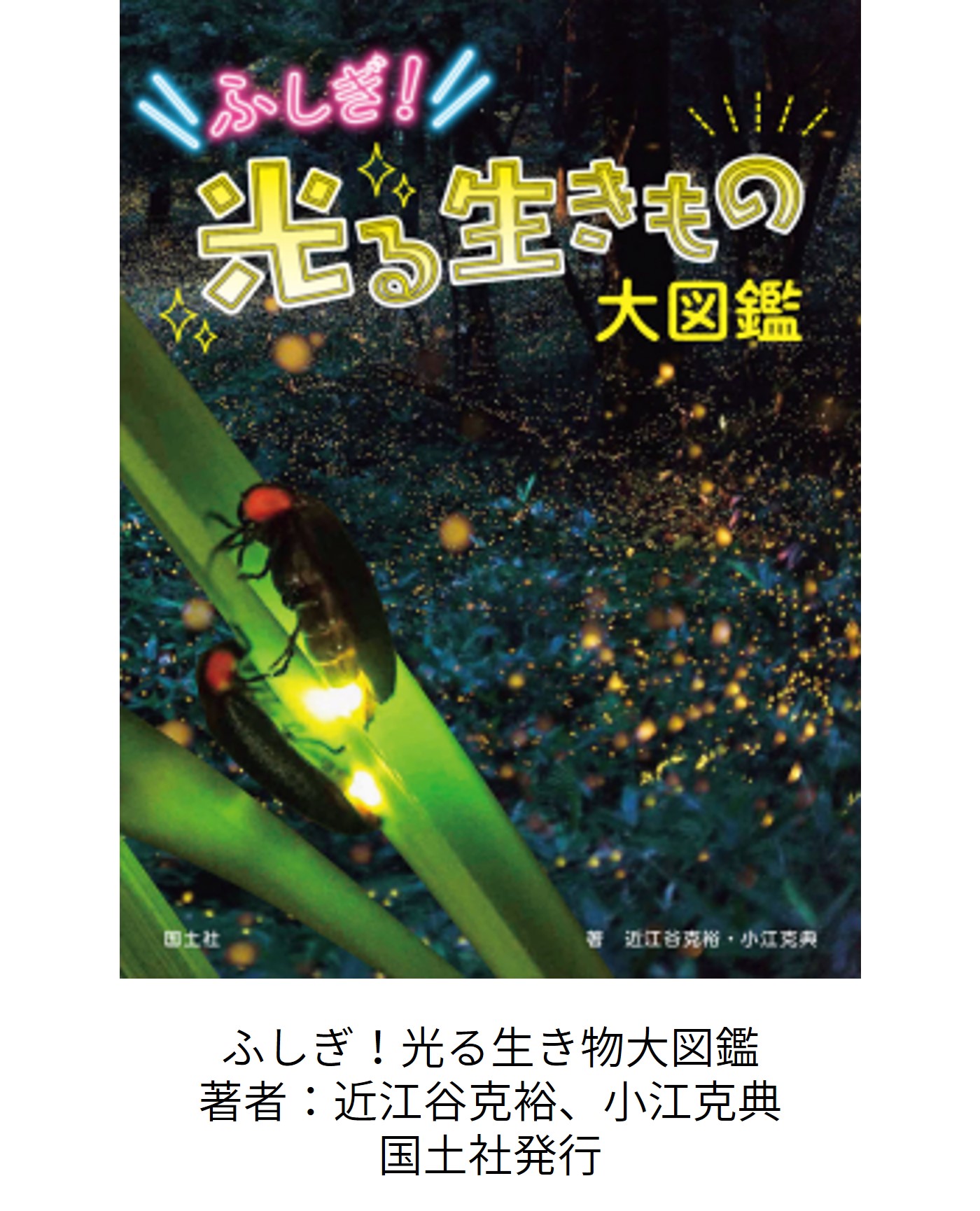
This is a large illustrated book for elementary and junior high school students on “luminous creatures” from around the world, with a focus on “luminous creatures” found in Japan. The currently known mechanism of luminescence is also explained in detail.

Yoshihiro Ohmiya
Award (Apr. 05, 2024)
Hot Topics Award at the 2024 Annual Meeting of The Japan Society for Bioscience, Biotechnology, and Agrochemistry (JSBBA)
Yuji Sekiguchi, Principal Research Manager, Biomedical Research Institute, received the Hot Topics Award at the 2024 Annual Meeting (100th Anniversary Meeting) of The Japan Society for Bioscience, Biotechnology, and Agrochemistry (JSBBA) for a paper he presented jointly with Shimadzu Corporation.
Title of presented paper:
A large-scale genomically predicted protein mass database enables rapid and broad-spectrum identification of bacterial and archaeal isolates by mass spectrometry
Presenters:
Yuji Sekiguchi, Dieter Tourlousse, Akiko Ohashi, Mayu Hamajima, and Daisuke Miura, AIST
Kanae Teramoto, Yoshihiro Yamada, Shinichi Iwamoto, and Koichi Tanaka, Shimadzu Corporation
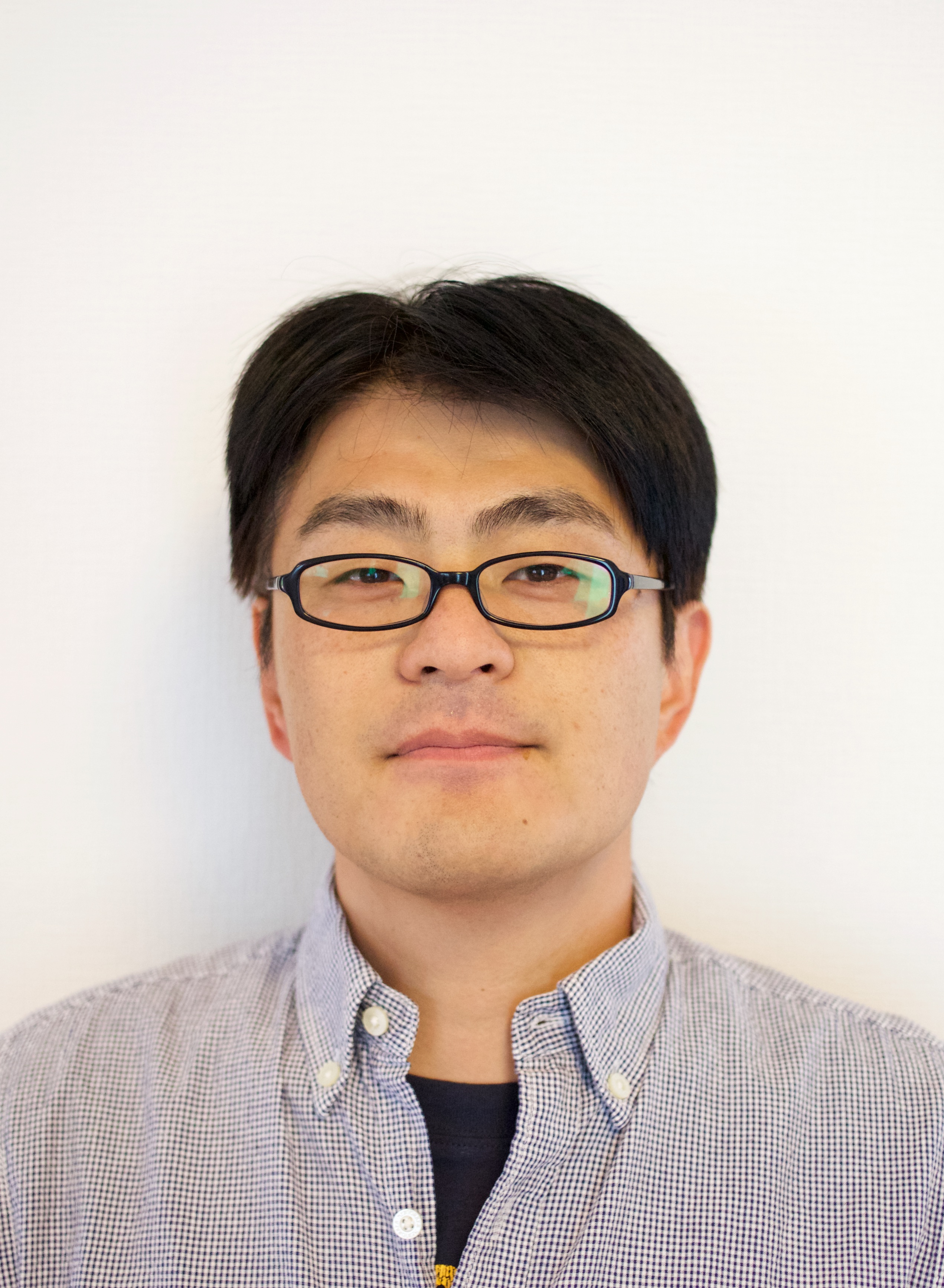
Yuji Sekiguchi
Press Release (Jan. 26, 2024)
AIST Press Release
Biodegradable Plastic Demonstrated to Degrade Even in Deep Seas
-Shedding Light on Solutions to Marine Pollution Problems Caused by Plastics
Presenters:
・Graduate School of Agricultural and Life Sciences, The University of Tokyo
・Japan Agency for Marine-Earth Science and Technology (JAMSTEC)
・Division of Molecular Science, School of Science and Technology, Graduate School of Science and Technology, Gunma University
・National Institute of Technology and Evaluation (NITE)
・Atsuyoshi Nakayama, Biomolecule Design Research Group, Biomedical Research Institute
・Japan BioPlastics Association (JBPA)
Overview:
The University of Tokyo, Japan Agency for Marine-Earth Science and Technology (JAMSTEC), Gunma University, National Institute of Technology and Evaluation (NITE), National Institute of Advanced Industrial Science and Technology (AIST), and Japan BioPlastics Association (JBPA) have revealed for the first time in the world that various biodegradable plastics (excluding polylactic acid) are degraded by microbes in all deep waters off the coast of Misaki in Kanagawa Prefecture (757 m depth), off the coast of Hatsushima in Shizuoka Prefecture (855 m depth), in the Myojin Sea Hills near the Izu-Ogasawara Island arc submarine volcano (1,292 m depth), in the deep-sea plain in the Kuroshio continuation basin (5,503 m depth), and in the waters off the coast of Minamitorishima in the easternmost tip of Japan (5,552 m depth).
The surface of the biodegradable plastic was observed to be covered with numerous microorganisms, and biodegradation progressed over time as rough bumps formed on the surface of the sample (Figure 1). The biodegradation rate in deep water was also confirmed to be biodegradable at all depths, although the biodegradation rate slowed down as the water depth increased. At a depth of approximately 1,000 m, it was also estimated by calculation that a plastic bag made of the biodegradable plastic used in this study would biodegrade in three weeks to two months.
This time, we also succeeded in discovering many new microorganisms that can degrade biodegradable plastics from the deep sea through bacterial flora analysis (16SrRNA gene amplicon sequencing) and metagenome analysis. Furthermore, the discovered microorganisms with the ability to degradate were found to inhabit various marine sediments around the world, suggesting that biodegradable plastics that have been proven to be degradable can be degraded in any of the world's deep seas.
The results of this research are expected to advance the research and development of biodegradable plastics as an excellent material that will contribute to the control of marine plastic pollution in the future.
The research results will be published in the online edition of the international scientific journal Nature Communications on January 26, 2024 (Japan time).
Please click here (Japanese) to read the detailed press release article.
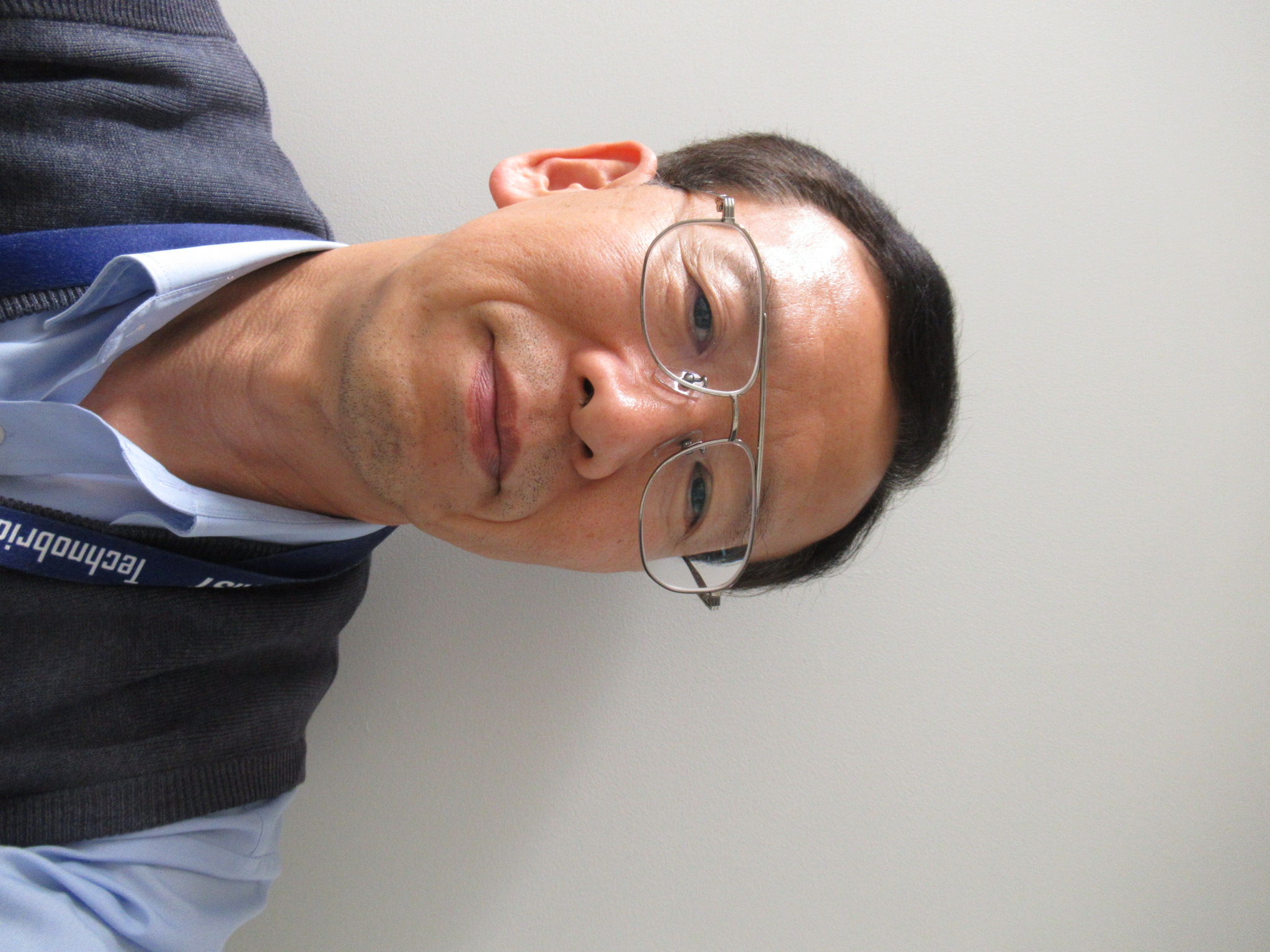
Atsuyoshi Nakayama
Press Release (Dec. 5, 2023)
AIST Press Release
New Microorganism Identification Technology Using Theoretical Protein Mass Information
-Rapid Identification of Diverse Prokaryotic Species by Mass Spectrometry Based on Information from 200,000 Prokaryotic Microbial Genomes-
Presenters:
Yuji Sekiguchi, Principal Research Manager, Biomedical Research Institute
Shimadzu Corporation
Overview:
A wide variety of prokaryotic microorganisms (bacteria and archaea) exist in the environment and are closely related to human and animal health, food quality, environmental purification, and the global material cycles. For this reason, tests that culture, isolate, and then taxonomically identify those microorganisms are widely used in the clinical diagnosis of infectious diseases, food hygiene control, and environmental health assessment.
In this study, we developed a technology that enables rapid identification of a variety of prokaryotic microorganisms using mass spectrometry, which has been impossible in the past. This technology has realized rapid identification of diverse prokaryotic species, including uncultivated microorganisms, by constructing a large-scale theoretical protein mass database estimated from genome information of prokaryotic microorganisms and developing an algorithm for analyzing mass spectrometry results. It is an unprecedented analysis platform for rapid microbial identification based on mass spectrometry of bacterial components by matrix-assisted laser desorption/ionization time-of-flight mass spectrometry (MALDI-TOF MS). The number of microorganisms that can be identified has increased more than 10-fold compared to conventional mass databases using cultured bacteria. It also enables rapid identification of uncultured microorganisms, which was not possible in the past. Since this technology is useful for rapid identification of a wide variety of microorganisms, it will contribute not only to the identification of microorganisms that cause infectious diseases in humans and animals, microbial testing in the food industry, and the advancement and acceleration of environmental microbial analysis, but also to the advancement and acceleration of research and development, including screening of useful microorganisms.
Details of this technology were published in Genome Biology on December 5, 2023.
Please click here (Japanese) to read the detailed press release article.

Yuji Sekiguchi
Award(Oct. 19, 2023)
FY2023 Award for Industrial Standardization Contributior (presented by the Director-General of the Industrial Science and Technology Policy and Environment Bureau)
Awardee:
Atsuyoshi Nakayama, Biomolecule Design Research Group, Biomedical Research Institute
Major Achievements:
He sorted out the problems with the ISO standards related to marine biodegradation that were created under European initiative. He developed a new marine biodegradation test method that significantly shortened the test period and improved reproducibility. He disseminated the method to domestic companies through technical consulting, etc., and presented factors affecting biodegradation, precautions to be taken when collecting seawater, and storage. As a result, many companies and research institutes introduced the equipment, which greatly contributed to the development of new biodegradable materials. He also developed a new simplified method of immersion testing in actual seawater, which had been difficult to implement, and proposed it to ISO/TC61 (plastics)/SC14 (environmental aspects)/WG2 (biodegradability) from Japan, both of which received 100% approval. He was the project leader of CD (committee draft) 18957 (accelerated aerobic seawater biodegradation test) and DIS (draft international standard) 16636 (disintegration under aqueous environment test) and was instrumental in their ISO standardization.
For more details, please click here (Japanese).

Atsuyoshi Nakayama
Press Release (Apr. 24, 2023)
AIST Press Release
Discovery that Proteins Denature and Become Smaller
-A New Normal for Proteins, Expected to be Applied to Stabilization Technology for Antibody Drugs
Presenters:
Hiroshi Imamura, Assistant Professor, Nagahama Institute of Bio-Science and Technology
Shinya Honda, Invited Researcher, Biomedical Research Institute
Overview:
It has been believed that when a protein is denatured, the size of the molecule increases without exception. However, we have discovered that there are proteins whose radius of gyration decreases after denaturation, overturning this textbook common sense. This protein was an antibody (immunoglobulin G), which is very important for both research and medical applications.
Using a new analytical method called "size-exclusion chromatography coupled small-angle X-ray scattering (SEC-SAXS)," the researchers found that when the antibody was immersed in acid, it changed from its natural Y-shaped structure to a smaller spherical structure. Unable to explain this phenomenon using conventional empirical rules in protein science, Dr. Honda and his team proposed a new model to interpret this phenomenon. This research is an important achievement in protein science because the model indicates that the same thing can happen with other large proteins (multi-domain proteins) other than antibodies. Although the biological significance of antibodies that denature and become smaller is not fully clear, it is thought to be related to improved digestion tolerance in the stomach (promoting passive immunity) and secretion from antibody-producing cells (increasing productivity).
Details of the research results were published on April 24, 2023 in The Journal of Physical Chemistry Letters, a journal published by the American Chemical Society.
Please click here (Japanese) to read the detailed press release article.
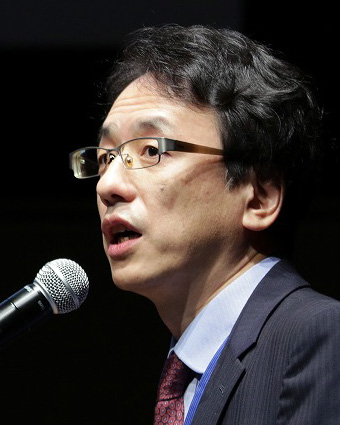
Shinya Honda
Award (Apr. 21, 2023)
Shodai Hino, Norioki Kawasaki, and Atsuyoshi Nakayama of the Biomolecule Design Research Group received the Interesting Panel Award for their panel "Degradation Control of Biodegradable Plastic by Light" exhibited at the Industrial Technology Support Fair in KANSAI 2022 - Manufacturing x "Power for Life" held at the Business Innovation Center Osaka on November 11, 2022.
Panel title: Control of Degradation of Biodegradable Plastics by Light
Presenters:
Biomolecule Design Research Group, Biomedical Research Institute
Shodai Hino, Norioki Kawasaki, Atsuyoshi Nakayama
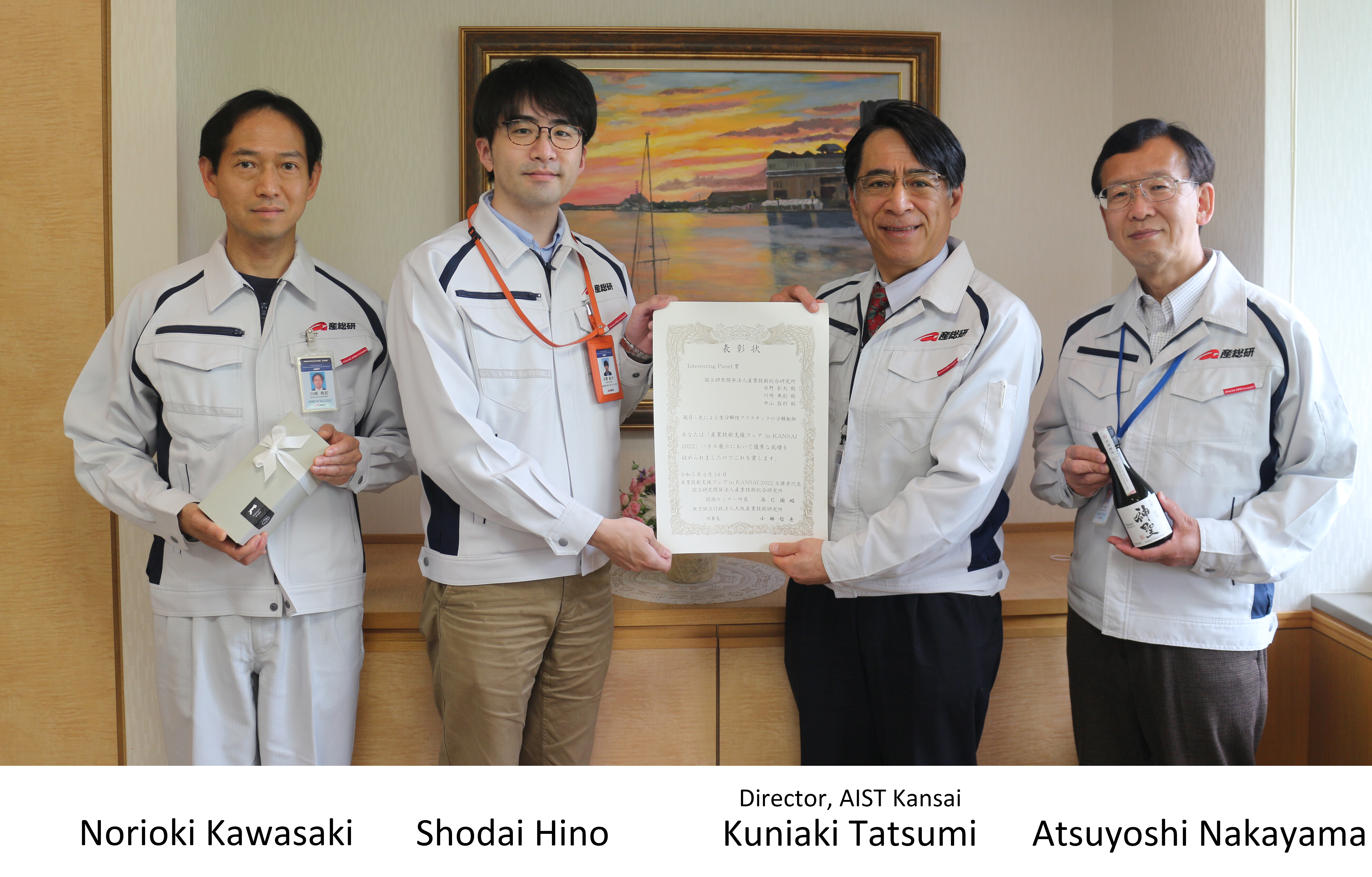
Research Results (Apr. 19, 2023)
Research results of Tomoki Himiyama, Biomolecule Design Research Group, have been published in Bioconjugate Chemistry and selected for the Supplementary Cover.
Paper:
Himiyama, T., Hamaguchi, T., Yonekura, K., Nakamura, T.: Unnaturally Distorted Hexagonal Protein Ring Alternatingly Reorganized from Two Distinct Chemically Modified Proteins. Bioconjugate Chem., 34(4), 764-774 (2023).
Details
Abstract of Results:
Modifications of protein assembly states and shapes were achieved by chemical modification. Two types of dissociating mutants were designed by introducing amino acid mutations to the hexagonal ring-type protein assembly. Subsequent chemical modifications reconstructed the protein-protein interactions to reorganize them into an artificial assembly composed of two types of mutants. Cryo-electron microscopy measurements by Dr. Tasuku Hamaguchi (Associate Professor at Tohoku University) and Dr. Koji Yonekura (Group Director/Professor at RIKEN/Tohoku University) revealed that this artificial protein assembly has a unique shape that is distorted from the regular hexagon of the wild-type protein, and that the two mutants are arranged alternately. This research has enabled the construction of artificial protein assemblies, which have been difficult to access with conventional amino acid mutations. Details of this technique were published in Bioconjugate Chemistry on April 19, 2023, and this paper was selected for the Supplementary Cover.
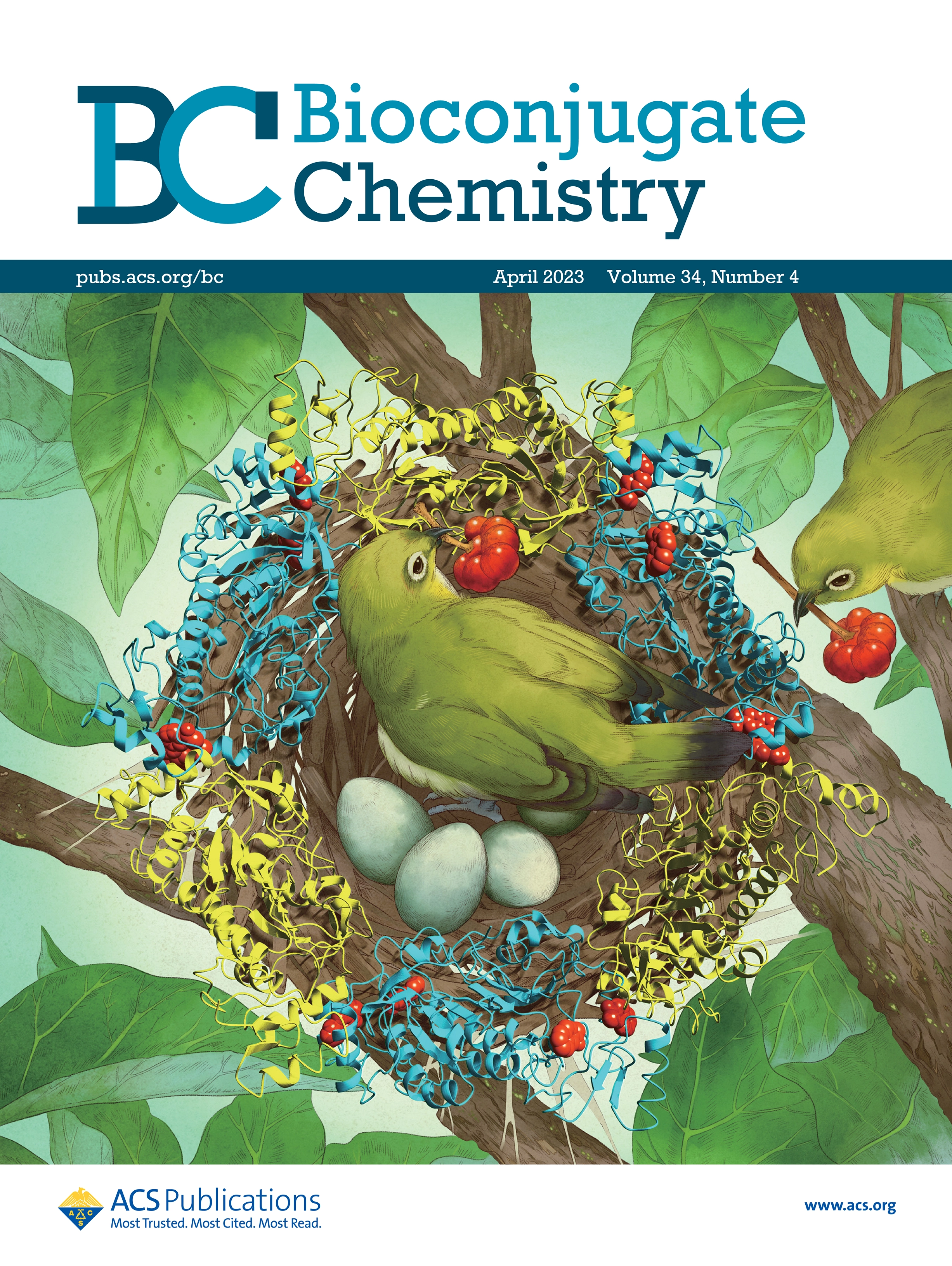

Tomoki Himiyama